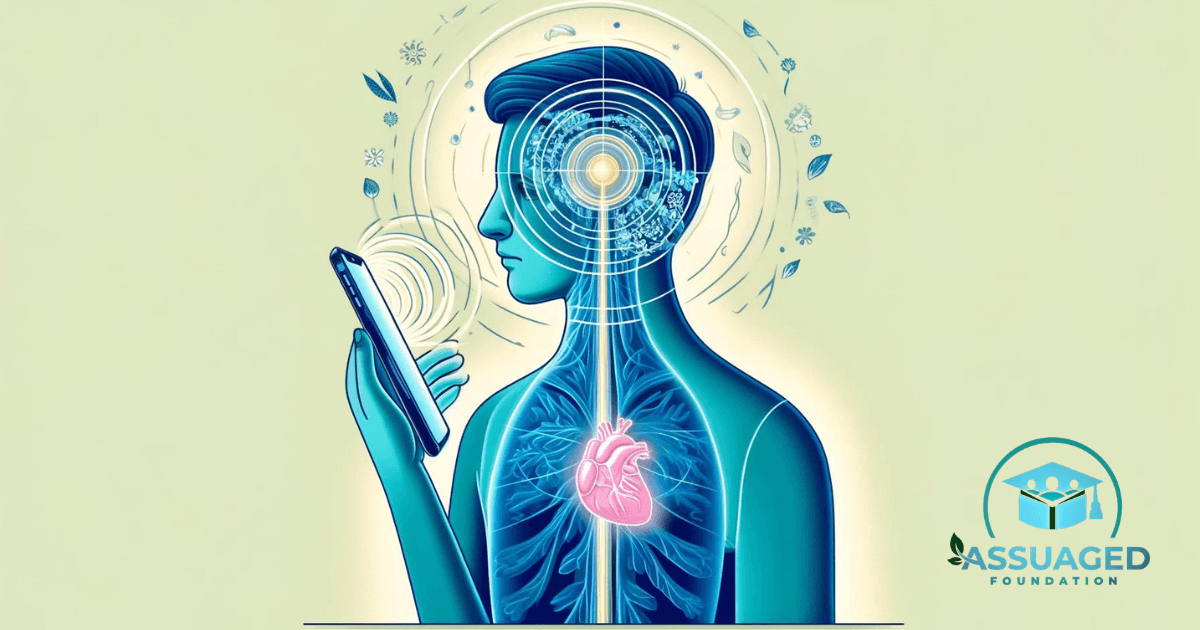Many people believe that cell phones are little evil cancer-causing devices, but this has yet to be confirmed. Cell phones use radiofrequency radiation (RF) to send signals. RF is not the same as other forms of harmful radiation, but that does not necessarily mean that it is entirely safe. To this date, there needs to be more evidence/research that provides a black-and-white answer to this question, but we should still be cautious.
%20(1).png?width=1200&height=630&name=Cell%20Phone%20Radiation%2c%20Is%20it%20Actually%20Dangerous%20(1200%20x%20630%20px)%20(1).png)
In today's digitally driven world, everything we do involves our cell phones. From setting our morning alarms to ordering food, cell phones have gradually become essential parts of our day-to-day lives. But our reliance on these technologies has posed some questions amongst the public, the foremost being, “Is it safe?” Let's delve into the facts to understand the risks.
What is Cell Phone Radiation?
Cell phone radiation refers to the electromagnetic radiation emitted by mobile phones during operation. This type of radiation, known as radiofrequency (RF) energy, falls within the non-ionizing part of the electromagnetic spectrum, meaning it lacks sufficient energy to damage DNA or cells directly. Despite this, the debate over its potential health effects persists.
%20(3).png?width=1200&height=630&name=Cell%20Phone%20Radiation%2c%20Is%20it%20Actually%20Dangerous%20(1200%20x%20630%20px)%20(3).png)
The Scientific Consensus
The scientific community has conducted extensive research to determine whether exposure to RF energy from cell phones poses a health risk. Many scientists have set out to find an answer to the question, "Is it safe?” and have conducted extensive research on the possible health risks of RF energy from cell phones.
According to the World Health Organization (WHO)[1] and the International Agency for Research on Cancer (IARC)[2], cell phone radiation is classified as a "possible human carcinogen" (Group 2B), indicating that there is limited evidence suggesting it could cause cancer in humans. Many everyday items, including pickled vegetables and coffee, share this classification.
Potential Health Risks
The thing that most people are scared of surrounding cell phone radiation is the potential link to brain cancer. As mentioned before, studies have explored the theory and have found no correlation between long-term cell phone use and an increased risk of developing glioma (a type of brain tumor). While some research suggests a possible association, especially among heavy users, the evidence remains inconclusive.
Although the radiation itself can be considered safe, heavy use of cell phones can lead to other health concerns, such as the effects of blue light on sleep patterns, eye strain, or sitting hunched over, ruining posture. Here are some examples of advert health effects caused by prolonged cell phone use:
-
Depression and other mental health issues related to social media use
-
Tired, Itchy, and Dry Eyes caused by blue light scattering in your retina
-
Sleep disturbances caused by blue light interfering with your body's natural clock, causing your body to think that it is still daytime
-
Headaches caused by many factors, including posture, sleep deprivation, etc.
- Stiffness and pain in neck and back, caused by bad posture
We must understand that, to this date, there is no definitive evidence that cell phone radiation is a serious health risk, but radiation is not all we have to look out for. There are lots more factors that can have negative effects on your body. Therefore, it's wise to reduce screen time and avoid heavy use of cell phones with a static posture.
Minimizing Exposure
For those concerned about the potential risks of cell phone radiation or all the other harmful effects that come with heavy use of cell phones, here are some practical steps you can take to minimize exposure:
-
Keep the device away by Using speakerphone or earphones
-
Text instead of calling when possible
-
Limit cell phone use, especially long calls
-
Choose a device with a lower Specific Absorption Rate (SAR) value, which measures the rate at which the body absorbs RF energy
-
Use the night light mode on your cell phone when you are in a dark room or getting ready to sleep
-
Wear blue light-filtering glasses when using your cell phone, or turn on the blue light-filtering mode on your cell phone when available
-
Keep good posture in mind when using cell phones. Move your neck and head around often to avoid stiffness
Conclusion
Whether cell phone radiation can be dangerous remains a topic of scientific investigation. While current evidence does not conclusively link cell phone radiation to serious health issues, adopting precautionary measures for all the other negative impacts of cell phones can help mitigate potential health risks. As research continues, stay informed and make conscious choices about your cell phone habits because it is crucial for our well-being in the digital age.









%20(2).png?width=1200&height=630&name=Cell%20Phone%20Radiation%2c%20Is%20it%20Actually%20Dangerous%20(1200%20x%20630%20px)%20(2).png)






